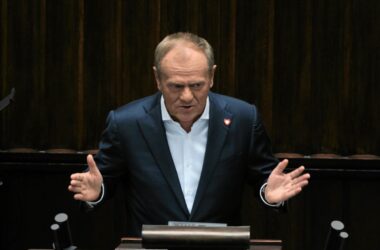Polish President Karol Nawrocki’s administration has signaled it will not support proposed increases in alcohol excise taxes or the sugar tax, prompting political debates over the decision’s implications.
Komentarze Regarding Nawrocki’s Possible Decision
“President Karol Nawrocki has gifted Poles energy savings, yet he holds a completely different stance on alcohol and refuses to raise excise duties on these products. This is hard to understand,” wrote Zbigniew Konwiński of PO on X. He referenced the president’s previous veto on wind turbine legislation and freezing energy prices. Meanwhile, Slawomir Mentzen expressed optimism, noting Nawrocki signed his declaration opposing tax hikes. “I believe him,” he stated. “It seems the Confederation won the presidential elections. No wind turbines, no alcohol excise tax, no sugar tax. Even PiS supported these measures when in power. There was a significant political consensus on these issues,” commented journalist Tomasz Markiewka.
Veto and Healthcare Policy
Patryk Słowik, a journalist from Wirtualna Polska, highlighted that “an excise tax increase on alcohol and tobacco products reflecting inflation is necessary. Studies consistently show it is one of the most important elements of shaping healthcare policy and would lead to substantial budget savings, particularly in treating alcohol-related and smoking-related diseases.” Economist Mark Tatala emphasized, “The excise tax map proposes a 5% increase. Deceiving voters in the first quarter of the presidency would not be the wisest political move.” He added, “I would prioritize a spending reduction plan, as the CIT tax and digital tax could face similar challenges.”
Proposed Changes
The Ministry of Finance proposed “updating excise tax rates on alcoholic products for 2026 and 2027.” The draft bill suggests a 15% increase in alcohol excise taxes by January 2026 compared to 2025 rates, followed by a 10% rise in 2027. Attention was also drawn to the so-called sugar tax, introduced in 2020, which the ministry claims “significantly deviates from current beverage prices. Thus, the fee is insufficient to influence consumer behavior.” It was further stressed that “limiting the economic accessibility of sweetened drinks is tied to growing obesity rates and increased healthcare spending in this area.”
Source: Gazeta, Radio ZET, X (social media), Wirtualna Polska, Ministry of Finance










